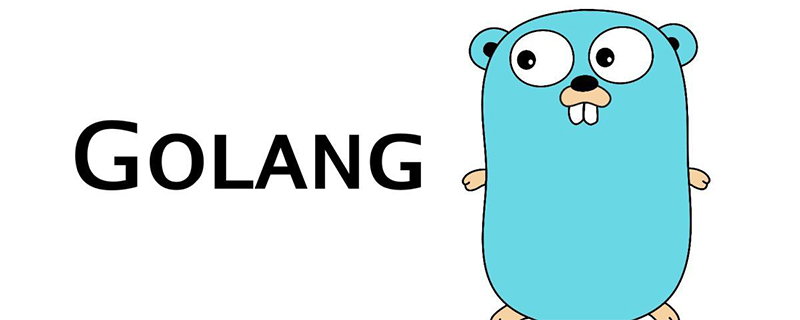How to deploy golang to the server?

How to deploy Golang program to the server
Environment
Development Environment: mac
Production environment: CentOS 6.8 under virtualbox (virtual machine)

virtualbox

Server environment

Local development mac environment go env parameter
Process
go’s code
package main
import (
"fmt"
"log"
"net/http"
)
func sayHello(w http.ResponseWriter, r *http.Request) {
fmt.Fprintf(w,"您看到我了")
}
func main() {
http.HandleFunc("/",sayHello)
log.Println("启动了")
err := http.ListenAndServe(":9000",nil)
if err != nil{
log.Fatal("List 9000")
}
}That’s all, I won’t go into details about the meaning of the code.
The code has been written, and now it needs to be compiled. Since it is compiled from a mac environment to run under Linux, everything involves cross-platform compilation.
Compile code command
env GOOS=linux GOARCH=386 go build main.go
PS: 386 here is a big pit, here is the platform to run this packaged program. If it is Linux, you need to use uname -a to check the Linux system environment you are running. Common environments generally include amd64, i386, etc.
OK, after compilation is completed, a main executable file will be generated without a suffix. At this time, you only need to upload this file to your virtual machine and run it directly.

Run directly
If the effect shown above appears after running, it means it is running. At this time, if you open your browser and access your server’s IP: 9000, you will see the content as shown below

Browser Picture
That’s right It’s so simple. Today is my first deployment, and I’m quite surprised. It doesn’t require any language environment. For example, java programs need to install java on the server, and php needs to install Apache, PHP and other running environments. Go does not need any, only one A linux system is fine, just throw it in.
The following is the pitfall I encountered at that time
1. Cannot execute binary file appears

cannot execute binary file
The reason for this is that your compilation running environment is wrong, that is, the 386 above needs to be replaced with the environment of the server you are running. You can use uname -a Check.
2. It runs, but cannot be accessed
This problem is usually caused by your server's firewall or network problem.
You can simply and rudely turn off the server's firewall service iptables stop, and then see if you can access it. In a real production environment, it is not recommended to turn off the firewall.
If you deploy real online operations, you will definitely need some security, process guarding, etc. This article is just an introduction to deployment and will not discuss it.
For more go language knowledge, please pay attention to the go language tutorial column on the PHP Chinese website.
The above is the detailed content of How to deploy golang to the server?. For more information, please follow other related articles on the PHP Chinese website!

Hot AI Tools

Undresser.AI Undress
AI-powered app for creating realistic nude photos

AI Clothes Remover
Online AI tool for removing clothes from photos.

Undress AI Tool
Undress images for free

Clothoff.io
AI clothes remover

Video Face Swap
Swap faces in any video effortlessly with our completely free AI face swap tool!

Hot Article

Hot Tools

Notepad++7.3.1
Easy-to-use and free code editor

SublimeText3 Chinese version
Chinese version, very easy to use

Zend Studio 13.0.1
Powerful PHP integrated development environment

Dreamweaver CS6
Visual web development tools

SublimeText3 Mac version
God-level code editing software (SublimeText3)

Hot Topics
 How to safely read and write files using Golang?
Jun 06, 2024 pm 05:14 PM
How to safely read and write files using Golang?
Jun 06, 2024 pm 05:14 PM
Reading and writing files safely in Go is crucial. Guidelines include: Checking file permissions Closing files using defer Validating file paths Using context timeouts Following these guidelines ensures the security of your data and the robustness of your application.
 How to configure connection pool for Golang database connection?
Jun 06, 2024 am 11:21 AM
How to configure connection pool for Golang database connection?
Jun 06, 2024 am 11:21 AM
How to configure connection pooling for Go database connections? Use the DB type in the database/sql package to create a database connection; set MaxOpenConns to control the maximum number of concurrent connections; set MaxIdleConns to set the maximum number of idle connections; set ConnMaxLifetime to control the maximum life cycle of the connection.
 How to save JSON data to database in Golang?
Jun 06, 2024 am 11:24 AM
How to save JSON data to database in Golang?
Jun 06, 2024 am 11:24 AM
JSON data can be saved into a MySQL database by using the gjson library or the json.Unmarshal function. The gjson library provides convenience methods to parse JSON fields, and the json.Unmarshal function requires a target type pointer to unmarshal JSON data. Both methods require preparing SQL statements and performing insert operations to persist the data into the database.
 Golang framework vs. Go framework: Comparison of internal architecture and external features
Jun 06, 2024 pm 12:37 PM
Golang framework vs. Go framework: Comparison of internal architecture and external features
Jun 06, 2024 pm 12:37 PM
The difference between the GoLang framework and the Go framework is reflected in the internal architecture and external features. The GoLang framework is based on the Go standard library and extends its functionality, while the Go framework consists of independent libraries to achieve specific purposes. The GoLang framework is more flexible and the Go framework is easier to use. The GoLang framework has a slight advantage in performance, and the Go framework is more scalable. Case: gin-gonic (Go framework) is used to build REST API, while Echo (GoLang framework) is used to build web applications.
 Transforming from front-end to back-end development, is it more promising to learn Java or Golang?
Apr 02, 2025 am 09:12 AM
Transforming from front-end to back-end development, is it more promising to learn Java or Golang?
Apr 02, 2025 am 09:12 AM
Backend learning path: The exploration journey from front-end to back-end As a back-end beginner who transforms from front-end development, you already have the foundation of nodejs,...
 How to find the first substring matched by a Golang regular expression?
Jun 06, 2024 am 10:51 AM
How to find the first substring matched by a Golang regular expression?
Jun 06, 2024 am 10:51 AM
The FindStringSubmatch function finds the first substring matched by a regular expression: the function returns a slice containing the matching substring, with the first element being the entire matched string and subsequent elements being individual substrings. Code example: regexp.FindStringSubmatch(text,pattern) returns a slice of matching substrings. Practical case: It can be used to match the domain name in the email address, for example: email:="user@example.com", pattern:=@([^\s]+)$ to get the domain name match[1].
 Golang framework development practical tutorial: FAQs
Jun 06, 2024 am 11:02 AM
Golang framework development practical tutorial: FAQs
Jun 06, 2024 am 11:02 AM
Go framework development FAQ: Framework selection: Depends on application requirements and developer preferences, such as Gin (API), Echo (extensible), Beego (ORM), Iris (performance). Installation and use: Use the gomod command to install, import the framework and use it. Database interaction: Use ORM libraries, such as gorm, to establish database connections and operations. Authentication and authorization: Use session management and authentication middleware such as gin-contrib/sessions. Practical case: Use the Gin framework to build a simple blog API that provides POST, GET and other functions.
 How to use predefined time zone with Golang?
Jun 06, 2024 pm 01:02 PM
How to use predefined time zone with Golang?
Jun 06, 2024 pm 01:02 PM
Using predefined time zones in Go includes the following steps: Import the "time" package. Load a specific time zone through the LoadLocation function. Use the loaded time zone in operations such as creating Time objects, parsing time strings, and performing date and time conversions. Compare dates using different time zones to illustrate the application of the predefined time zone feature.






